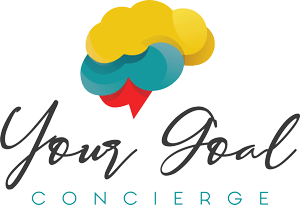Escape to Thrive: A Gift of Self-Care
Erica Kesse
Dear Thriving Leaders,
As we continue to celebrate Counseling Awareness Month, I want to remind you of the importance of taking care of yourself. As a therapist and author of "Honey, You Need Counseling Skills," I've seen firsthand how burnout and imposter syndrome can affect even the most dedicated and passionate individuals. That's why I'm excited to share with you a special opportunity to escape, recharge, and thrive at Thrive Oasis, my serene retreat space.
The Gift of Self-Care
It's easy to forget that taking care of yourself is not a luxury, but a necessity. By prioritizing your well-being, you'll become a more effective, compassionate, and resilient leader. This month, I invite you to treat yourself or a loved one to a solo retreat at Thrive Oasis, the perfect sanctuary for rejuvenation and growth.
Thrive Oasis: Your Sanctuary for Self-Discovery
Nestled in a peaceful setting, Thrive Oasis offers a tranquil atmosphere conducive to reflection, relaxation, and renewal. Our solo retreats are designed to provide you with the space and guidance you need to:
- Reconnect with Yourself: Take time to reflect on your goals, values, and aspirations.
- Recharge Your Energy: Engage in nourishing activities, from yoga to meditation, and enjoy healthy, delicious meals.
- Renew Your Purpose: Clarify your vision and mission, and leave with a renewed sense of direction and motivation.
A Special Offer for Mother's Day
In celebration of Mother's Day, I'm offering a unique opportunity to gift your mom (or yourself!) a solo retreat at Thrive Oasis. Imagine the joy and relaxation of spending a few days in a serene environment, focused solely on personal growth and well-being. Book your retreat now and give the gift of self-care this Mother's Day.
Book Your Retreat Today
To book your solo retreat at Thrive Oasis, simply visit our website at thriveoasis.life and reserve your spot. As a special offer for Counseling Awareness Month, send an email, subject line “Mother’s Day” and we will give you an extra gift during your retreat.
Read, Reflect, and Recharge
In addition to your retreat, I encourage you to read my book, "Honey, You Need Counseling Skills," which shares the five imperative counseling skills every leader needs to thrive. These skills will help you navigate the challenges of leadership while maintaining your mental and emotional well-being.
Remember, taking care of yourself is not selfish; it's essential. By investing in your own well-being, you'll become a more effective, compassionate, and resilient leader. This Counseling Awareness Month, give yourself the gift of self-care and join us at Thrive Oasis.
Wishing you peace, serenity, and continued growth,
Erica Kesse
P.S. Treat yourself or your mom to the ultimate self-care experience this Mother's Day.



